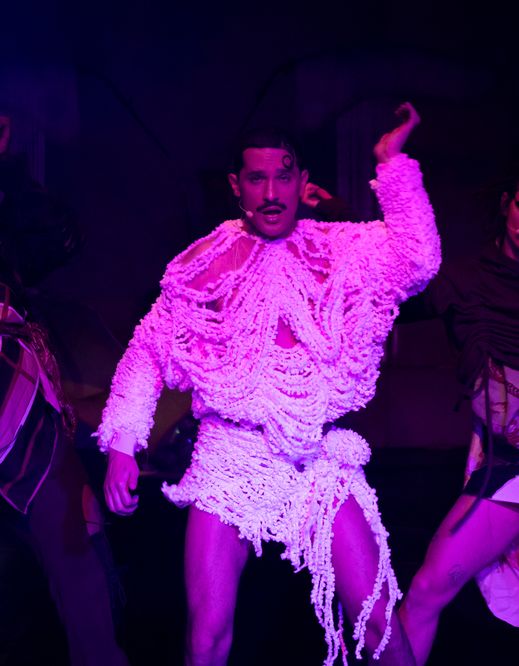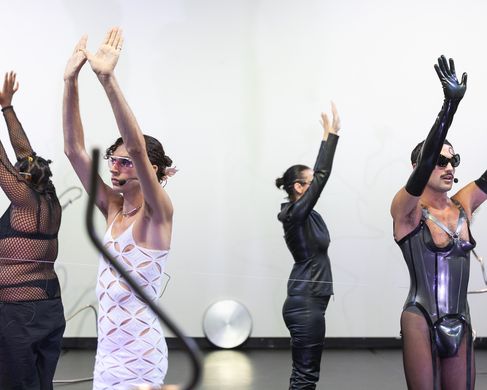During individual and collective engagements we will explore "Creative under Limitation", a notion that derives from Astrit Ismaili’s artistic practice.
The participants are guided to research fictional, historical and personal subjects that use creativity to overcome a certain limitation, whether physical or geo-political, etc. This process entails generating and researching fictional and historical material as references for "world" and character building and embodiment. The students will generate performative material using specific methods and embody the material collectively. The aim is to understand the complexity of making a performance or a performative work.
The course will include physical exercises and movement, music composition and making sound, rituals and transformation, researching and writing. Another element is testing the limits of the voice as musical instrument and identifying its political agency and how it relates to society and contemporary art.
The outcome of these courses will be structured into a group performance that will be shared with the public or within the group.
The workshop aims to help the participants to explore their performative potential and individual expressiveness in relation to performance and gender roles. Working collectively and individually the students will have the chance to exchange knowledge and understand the importance of a community in the nature of this kind of work.
key data
- Venue
- Festung Hohensalzburg
- Date
- 14. – 26. 8. 23
- Requirements
- The workshop is tailored for students who are interested to develop a performative practice or just have an experience with performance. Being a performance artist is not a must to participate in the workshop. The participants are expected to work individually and collectively. Since it is a performative workshop there need to be openness to engage in physically but also intellectually. As an artist working with queer theory and gender roles it is important to create a safe space where everyone feels comfortable and respected to share and express themselves the way they are.
- What to bring
- Laptop, papers and pencils, high heels, make-up, crazy alien looking costumes, fabrics
- Teaching language
- English
Astrit Ismaili
In their performance practice, Astrit Ismaili explores the transformational potential of bodies and spaces. Their work proposes bodies that consist of both imaginary and material realities, using alter egos, body extensions and wearable music instruments to embody different possibilities for becoming. Through these elements, they think of, about and through the body: as it transforms and is transformed, as it moves, makes sound and makes contact, as it extends and exceeds itself, reaching out to and touching the other. Within their practice, the act of singing is used to explore the role of voice in pop culture and identity politics. Fictional, historical and personal references are used as material to build worlds and embody new icons.
Astrit Ismaili graduated from the MA in Performance at DasArts in Amsterdam. They currently teach Performance at the MA Programme at Institute Kunst in Basel. They have received grants such as the Mondriaan Established Artist (2021) and the Young Visual Artists Awards (2011), and were a resident at ISCP in New York. They have opened with a performance Manifesta 14, Pristina (2022) and Athens Biennale, Athens (2021). Shows include at KW Institute for Contemporary Art/Berlin (2022), Neues Museum/Nuremberg, (2022) Impulstanz/Vienna (2021) Salzburger Kunstverein (2020), Oude Kerk/Amsterdam (2019) Stedelijk Museum/Amsterdam (2018) SALTS/Basel (2018), Kunstverein/Amsterdam. They co-organised the performance project Prishtinë - Mon Amour and co-curated a number of Lost & Found, a series of events where artists, writers, scientists and musicians can introduce hybrid works that do not fit comfortably into galleries or museums.


